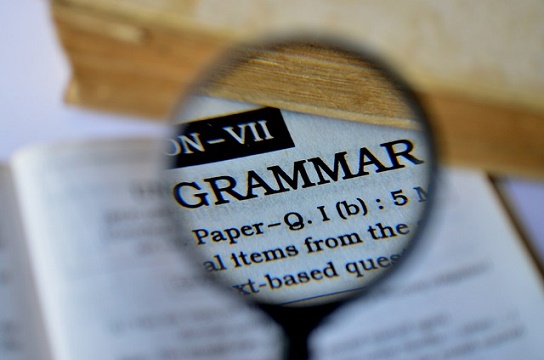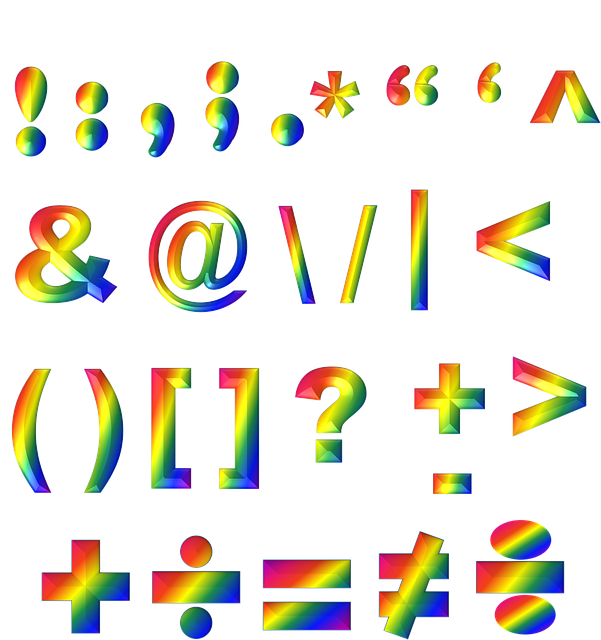
There are a lot of topics you should be focusing on during your TOEFL studying, but is grammar one of them? Yes! Even though the TOEFL has no questions specifically on grammar, you’ll be tested on your own grammar skills during the Speaking and Writing responses, so you need to make sure you have a good grasp of English grammar before test day.
There are some grammar rules that many English learners find tricky to remember and use correctly, but that’s what this guide is for! We go over the top 11 grammar rules to know for the TOEFL, complete with examples and short quizzes for each rule so you can test your knowledge. We end with the best methods and resources to use for your TOEFL grammar practice.
Is Grammar Tested on the TOEFL?
There’s no grammar section on the TOEFL, and you won’t have any questions that ask you specifically about grammar, but before you breathe a sigh of relief, know that you do need to know grammar for TOEFL success. How’s that possible if there are no questions on grammar? Your grammar knowledge will be tested based on how well you use it in your responses.
For the Speaking and Writing sections, where you need to come up with your own answers and can’t just fill in a bubble, test graders will be looking for grammatical errors. If you have a lot of errors in your TOEFL English grammar, it will definitely hurt your score in these sections.
So, your Speaking and Writing responses need to have great grammar for you to get high scores. Keep on reading to learn how to improve your grammar and avoid many of the common mistakes English learners make.
11 Common Grammar Mistakes People Make on the TOEFL
Below are 11 of the most common grammar issues English learners struggle with. If you can learn these rules during your TOEFL grammar practice, you’ll be well on your way to having a solid grasp of English grammar for TOEFL test day. For each rule we’ve included examples and a short quiz so you can test your knowledge.
By the way: we have built the world's best online TOEFL course. Get online practice (TPO-sytle!) and individual grading and feedback on Speaking and Writing.
To be fair, it's possible to get a good TOEFL score studying alone. But PrepScholar is the world's most effective TOEFL course if you are worried about the TOEFL and are struggling to improve your score.
Learn how you can improve your TOEFL score by 15 points today.
#1: Run-on Sentences
Run-on sentences are a common issue, especially when you’re nervous and trying to fit in as many words as possible. As a result, many TOEFL test-takers have essays and Speaking responses filled with run-on sentences. Not only are run-on sentences grammatically incorrect, but they can also make it hard for graders to understand what you’re trying to say. So, read these tips for avoiding run-on sentences, and during the TOEFL, remember to pause every now and then during the Speaking and Writing sections to make sure you’re not incorrectly stringing a bunch of sentences together.
A run-on sentence happens when two or more independent clauses are incorrectly combined into one sentence. Each sentence should have one subject and one verb unless multiple clauses have been correctly combined. There are several ways to properly combine multiple independent clauses:
-
-
- Separate the clauses with a semi-colon.
- Separate the clauses with a semi-colon and a linking word such as therefore, thus, however, consequently, furthermore, also, and nevertheless.
- Separate the clauses with a comma and a coordinating conjunction such as for, and, nor, but, or, yet, and so.
- You can also use a period to separate the clauses.
-
Ex. Madeleine went to the store she found a pair of shoes she really liked.
Above is a run-on sentence. Below are correct versions of it.
-
-
- Madeleine went to the store; she found a pair of shoes she really liked.
- Madeleine went to the store; consequently, she found a pair of shoes she really liked.
- Madeleine went to the store, and she found a pair of shoes she really liked.
- Madeleine went to the store. She found a pair of shoes she really liked.
-
Quiz
Select the grammatically correct sentences from the options below.
Answers: Sentences 1,3, and 5 are grammatically correct.
#2: Use Present (Not Future) Tense After Time Clauses
Another common mistake many English learners make is using the word “will” when it’s not needed. This is especially common during Speaking responses, when you don’t have as much time to think about what you’re going to say compared to Writing.
Do not use “will” to refer to the future in time clauses. Time clauses are typically those that being with a time expression, such as when, as, as soon as, while, after, until, and before.
Use present tense, not future tense, with time clauses which simply means removing the “will” from the sentence.
- Ex. As soon as the dishes are done, you can go out and play. (Not “as soon as the dishes will be done”)
- Ex. After the movie ends, head back to class. (Not “after the movie will end”)
- Ex. While I mow the lawn, my brother will be trimming the trees. (Not “while I will be mowing the lawn”)
Quiz
Decide if the following sentences are correct or not.
Answers: Sentences 1 and 3 are correct.

#3: Defined vs. Undefined Articles
Articles are little words that can cause English learners a lot of problems. “A” is the indefinite article that is used in front of general or undefined nouns. (If the noun begins with a vowel, “an” is used.)
“The” is the definite article used for people, places, or things that are “defined” for the speaker. When you use “the” in front of a noun, you’re referring to a specific object that you know.
Here are the main times when you should use “the” as an article:
#1: With a specific or defined object.
- Ex. The school’s soccer field was in need of upgrades.
#2: If it’s something that has been mentioned before.
- Ex. The restaurant you recommended was great.
#3: With superlatives.
- Ex. This is the best score you’ve ever gotten on a test.
#4: With ordinal numbers.
- Ex. The café is the second building on the right.
Quiz
Insert the correct article in the blanks.
Answers: 1: the, 2: an, 3: the, 4: the, 5: a
#4: Could, Should, and Would
These three words sound very similar to each other, but they each have their own specific meaning and aren’t interchangeable.
Could: Used to describe things you were able to do in the past, describe future possibilities, and make polite requests.
-
-
- Ex. Before I got sick, I could run five miles without stopping.
- Ex. If you practice every day, you could win the spelling bee.
- Ex. Could I have some dessert?
-
Should: Used to give advice.
-
-
- Ex. You should rest before exercising again.
-
Would: Used to describe what you’d do in unlikely situations. Also used to offer something politely.
Want to improve your TOEFL score? We have the world's leading TOEFL course.
Built by world-class instructors from Harvard and MIT, the course offers individual review, interactive lessons, and realistic online praactice, at an affordable price! It's the fastest way to get your target TOEFL score.-
-
- Ex. I would quit my job if I won the lottery.
- Ex. Would you like some dessert?
-
Quiz
Insert could, should, or would into each blank.
Answers: 1: should, 2: would, 3: would, 4: could, 5: could

#5: Adjective Order
If you’re describing something with a lot of adjectives, you need to make sure those adjectives come in the proper order, or it will sound strange to English speakers. For example, “ten small dogs” sounds correct, while “small ten dogs” will sound odd to anyone listening to or reading those words.
The order adjectives normally follow is
-
-
- #1: Quantity/number
- #2: Quality (such as “good” or “bad”)
- #3: Size
- #4: Shape
- #5: Age
- #6: Color
- #7: Nationality
- #8: Material
-
Ex. The seven big old black cows walked through the field.
Ex. The tall Canadian woman was waiting outside the shop.
Ex. The best lace dresses are sold here.
Quiz
Put the adjectives in the proper order
Answers: 1: tiny young brown cats, 2: two old wool socks, 3: four small Irish beers
#6: Their, There, and They’re
These three words sound exactly the same, but you’ll use each under very different circumstances. Master when you should use each word so you can show off your grammar skills by using them properly on your TOEFL essays.
There: Used to indicate a place that is not here. It can also be used to state something.
-
-
- Ex. Put the dessert over there.
- Ex. There are two new movie theaters in town.
-
Their: A possessive adjective, like his, her, your, or my. It indicates possession.
-
-
- Ex. This is their new office.
- Ex. Put it next to their mail.
-
They’re: A contraction of “they are”
-
-
- Ex. They’re going to be 15 minutes late.
- Ex. They’re the people you want to talk to.
-
Quiz
Insert the proper form of there/their/they’re into each blank
Answers: 1: they’re, 2: there, 3: their, 4: there, 5: their
#7: Me vs. Myself
Many people, both native English speakers and those learning the language, make the mistake of overusing “myself” because they think it sounds more polite and intelligent. In many of these cases, you should actually just use “me.”
-
-
- Ex. Can you get a taxi for John and me? (NOT “Can you get a taxi for John and myself?”)
-
“Me” is an object pronoun, which means it refers to the person the verb’s action is being done to.
-
-
- Ex. He didn’t ask me if I wanted fries with my burger.
- Ex. My teacher wants me to give a speech in class.
-
“Myself” is a reflexive pronoun, which means you should generally only use it in a sentence that also includes “I”. Use it only when you’d also use other reflexive pronouns like “herself” or “himself.”
-
-
- Ex. I made the entire dinner by myself.
- Ex. I let myself sleep in this morning.
-
Quiz
Insert “me” or “myself” in the blanks below.
Answers: 1: me, 2: me, 3: myself, 4: myself, 5: me
Want to improve your TOEFL score by 15 points?
Registration is now open for our best TOEFL course. We guarantee your money back if you don't improve your TOEFL score by 15 points or more.
PrepScholar TOEFL is online and it features thousands of practice questions and 1-on-1 Speaking and Writing review and feedback.

#8: Than vs. Then
Just one little letter makes a big difference between these two words. You’ll likely use both in your essays and Speaking responses, so be sure to know when they should be used. People often use “then” when they should be using “than” so watch out for that mistake.
Than: Used to compare things.
-
-
- Ex. Melissa got a higher score than Kevin did.
- Ex. I’d rather read a book than go swimming.
-
·Then: Used to indicate one thing following another thing in time.
-
-
- Ex. If you finished step one, then move on to step two.
- Ex. We’re going to read a book then go swimming.
-
Quiz
Insert “than” or “then” into the blanks.
Answers: 1: than, 2: then, 3: than, 4: than, 5: then
#9: Irregular Plural Forms
In English, to make most nouns plural, you simply add an ‘s’ to the end of the word; however, you likely know that there are dozens of exceptions to this rule. Keeping track of all these irregular plural forms can be tricky, but they’re important to learn because including words like “childrens” or “womans” in your essays or Speaking responses will be glaring mistakes the graders will surely notice.
Below is a chart with some of the most common irregular plural forms you might use in your TOEFL responses.
| Singular Form | Plural Form |
| Child | Children |
| Curriculum | Curricula |
| Fish | Fish |
| Foot | Feet |
| Half | Halves |
| Man | Men |
| Mouse | Mice |
| Syllabus | Syllabi |
| Thesis | Theses |
| Woman | Women |
Quiz
Enter the correct plural form of the noun in parentheses.
Answers: 1: children, 2: syllabi, 3: women, 4: fish, 5: feet

#10: Your vs. You’re
This is a rule than many native English speakers struggle with, but that doesn’t mean they’ll let you get away with it on the TOEFL. Like there/their/they’re in rule #6, “your” and “you’re” are homonyms, which means they sound the same but are spelled differently and have different meanings. This means you’ll need to be careful to use the correct form on the Writing section.
“Your” indicates possession, and it’s used for something belonging to you.
-
-
- Ex. Your dress is so pretty.
- Ex. Do you mind if I copy your homework?
-
“You’re” is short for “you are”.
-
-
- You’re so pretty.
- You’re going to be late for the party.
-
Quiz
Fill in the correct form of “your” or “you’re.”
Answers: 1: your, 2: your, 3: you’re, 4: your, 5: you’re
#11: Showing Possession With Apostrophes
In English, an apostrophe plus an ‘s’ is used to show possession. If you want to talk about the dog that John owns, you refer to it as “John’s dog.”
To indicate something that belongs to one person, put the apostrophe before the ‘s’.
-
-
- Ex. The boy’s game. (The game belongs to one boy.)
-
To indicate something that belongs to more than one person, put the apostrophe after the ‘s’.
-
-
- Ex. The boys’ game. (The game belongs to more than one boy.)
-
Do not use apostrophes with possessive pronouns like hers, his, its, mine, my, our, ours, their, or theirs. These words are already possessive and don’t need an apostrophe.
This is especially important to remember with ‘its’. Many people confuse ‘its’ and ‘it’s’. ‘Its’ is a possessive pronoun while ‘it’s’ stands for ‘it is.”
-
-
- Ex. The house has a leak in its roof.
- Ex. It’s going to be very hot today.
-
Also, apostrophes are never used to make a word plural.
- Ex. The three kids went to the park. (NOT “The three kid’s went to the park.”)
Quiz
Insert the proper form of the word in parentheses, adding an apostrophe if needed.
Answers: 1: girls, 2: its, 3: father’s, 4: ours, 5: boys’

What Are the Best Ways to Study TOEFL Grammar?
What’s the best way to get TOEFL grammar practice? There aren’t many high-quality sources out there specifically dedicated to TOEFL grammar, but the good news is that, by strengthening your overall English skills, you’ll also be improving your knowledge of English grammar which will help you use proper grammar in your Speaking and Writing responses.
We recommend following three steps for your TOEFL grammar grammar: becoming familiar with proper grammar through listening to and reading in English, then trying out your TOEFL grammar skills, and finally, getting feedback so you can perfect your English grammar. Each of the steps is described in more detail below, along with the best resources to use for grammar TOEFL test practice.
Read and Listen to English
Your first step for your TOEFL English grammar practice is to expose yourself to a lot of written and spoken English. That way you’ll hear and read English being used correctly which will make you less likely to make mistakes yourself with your TOEFL test grammar.
Best Resources for Listening
-
-
- BBC’s The English We Speak: This podcast is designed to help listeners improve their English skills.
- Breaking News English: This is another podcast for English learners. It focuses on current events around the world.
- TED Talks: There are over 2000 videos on this site, and they cover a wide variety of topics. Each lasts about 10-20 minutes.
-
Best Resources for Reading
-
-
- University textbooks: Introductory university-level books are a good resource and will get you prepared for the types of writing you’ll see on the TOEFL. Textbooks with the words “Introduction” or “Beginning” in the title are usually a good choice.
- PubMed: A good source for scientific abstracts so you can become more comfortable with science-related articles.
- Nature: Another source for science articles.
- The Economist: Economics and social science-related articles.
-
Practice, Practice, Practice!
Once you feel like your skills are strong enough, begin practicing on your own! Practice using proper grammar when both speaking and writing in order to strengthen these skills before test day.
Best Resources
-
-
- Learn4Good: This is one of the stronger sites dedicated to TOEFL grammar. It has several dozen multiple-choice questions on different grammar rules.
- Meetup: Meetup is a site that allows people to create groups on topics that interest them. Many places have a group for people looking to improve their English, and if there isn’t one by you, you can start your own.
- English Club: This site has six Writing tasks, including two TOEFL Integrated Writing exercises, you can answer.
- Good Luck TOEFL: This site has several hundred sample Writing prompts for TOEFL. Some of these TOEFL free exercises are easier to answer than those you’ll see on the TOEFL, but it’s still good practice if you’re not sure what to write about.
-
Have Someone Correct Your Grammar
While you’re practicing, it’s helpful to have someone with strong English skills look over or listen to your responses so they can point out any grammar mistakes you may be making but aren’t aware of. This way you can continue to improve your English grammar. This person can be a tutor, friend, or someone else trying to learn another language.
Best Resources
-
-
- Italki: On italki, you can either pay a tutor to speak English with you and critique you. You can also partner with another language learner and critique each other for free.
- Verbalplanet and Live Lingua: These are two other sites where you can pay a tutor to help you improve your English skills.
- Lang-8: This free site lets you write short passages in the language you’re learning, and native speakers will then make corrections for you.
-
Summary: TOEFL English Grammar
It’s important to have studied TOEFL grammar practice before exam day since your grammar skills will have an important impact on your score, specifically the Speaking and Writing sections. It can be difficult to keep track of all the TOEFL English grammar rules you need to remember, but we’ve come up with a list of the 11 common grammar issues TOEFL students struggle with.
When you’re studying grammar for TOEFL, you should make sure you read and listen to a lot of English materials so you’re exposed to proper grammar, you should then practice using grammar properly yourself, and finally, you should have someone with strong English skills listen to you speak or look over what you wrote so they can correct your mistakes. Follow these rules and you’ll be well on your way to mastering TOEFL test grammar!
What’s Next?
Want to keep your English learning fun? Check out our guide to the best games for learning English. (coming soon)
You’ll also need a strong vocab to do well on the TOEFL. Check out our guide to the 327 word you absolutely need to know for the exam.
Practice tests are one of the best ways to prepare for the TOEFL. We’ve gathered information on the highest-quality TOEFL practice tests into one place so you have access to the best study materials!
Ready to improve your TOEFL score by 15 points?
Download our best TOEFL Strategy eBook (valued at $14.49) for FREE! Learn the top 5 strategies you must know to improve your TOEFL score. Download it for free now:
